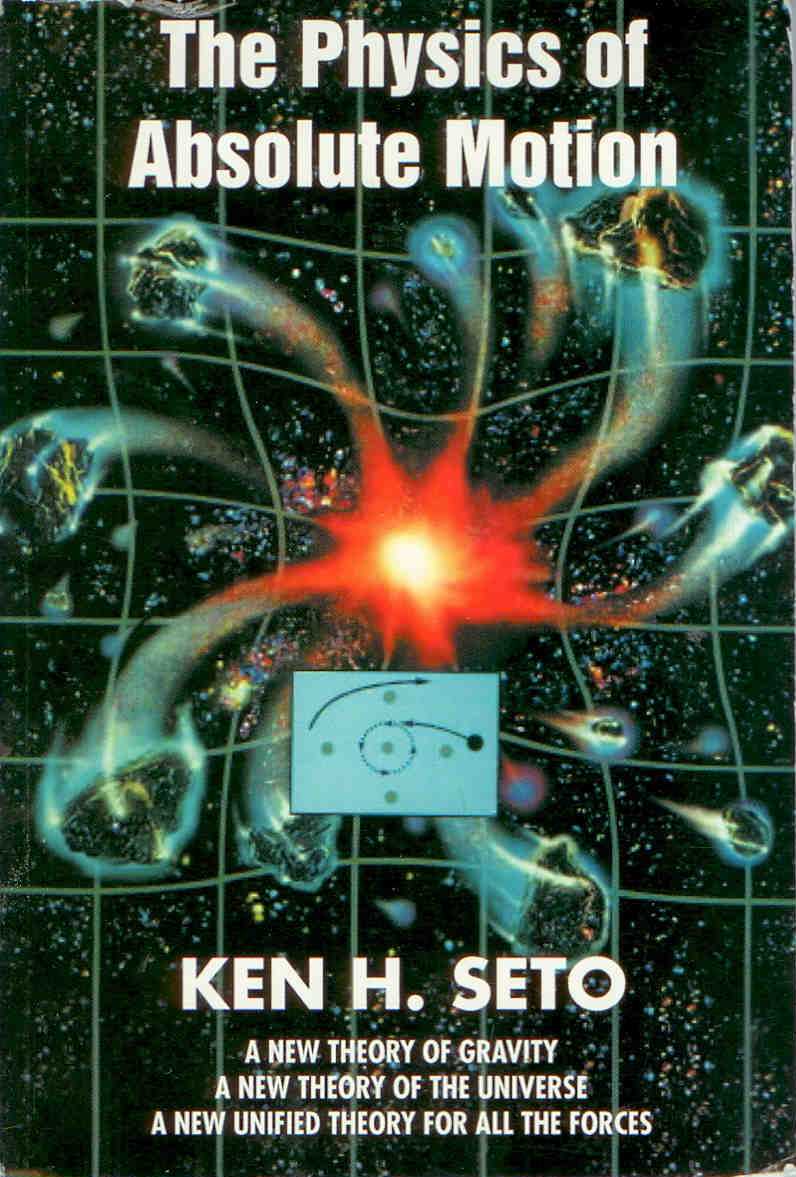The Physics of Absolute Motion (A New Theory of Everything) (Buy Now)
Authors
-
 (Unification, Relativity, Gravity, Cosmology)
(Unification, Relativity, Gravity, Cosmology)- I was born in Canton China in 1936.
- I moved to Canada in 1950.
- I graduated from Queen\'s University in Kingston Ontario....Chemical Engineer, 1962.
- My first job was with Polysar as Technical Service representative. I was granted a patent on Polymer Technology during this period at Polysar. I moved to the US in 1967....worked for a company called Protective Treatment as Product Development Manager. I was granted another patent on Polymer Technology. Also I was responsible for the development of 15 new products.
- I open a successful restaurant called The Barnsider in Dayton OH in 1975 and another successful restaurant called The Hickory Tree in 1987...
- I formed the Seto Chemical Co. in 1979. During this period I was successful in getting a product approved with GM and become a supplier of GM for this product.
- In the early 1990s I become interested in physics and cosmology. I developed a new theory of the universe called Model Mechanics. Model mechanics gives rise to a new the of gravity called DTG and a new theory of relativity called IRT.
Achievements:
- Two Patents in Polymer Technology.
- Formulated a new theory of the universe called Model Mechanics. Model Mechanics gives rise to an Improved Relativity Theory called IRT. IRT includes SRT as a subset. However, unlike SRT, the equations of IRT are valid in all environments, including gravity. Model Mechanics also gives rise to a new theory of gravity called Doppler Theory of Gravity (DTG). DTG is unified with the Electromagnetic and the Nuclear Weak and Strong forces naturally. The equation of DTG explains why the far reached regions of the universe are in a state of accelerated expansion. Also Model Mechanics gives physical expanation for Dark Matter and Dark Energy.
- Published articles in peer reviewed journals (Science, Nature, Galilean Electrodynamics, EPISTEME)
Websites about Ken Seto:
- Is Ken Seto Genius or Madman? - Androcles, 2/12/05 at http://www.sci.tech-archive.net/
- Could there be a basic particle? - Ken\'s answer to http://www.helium.com/


